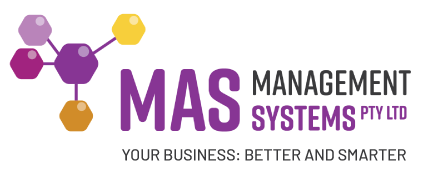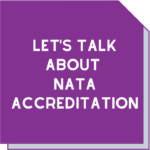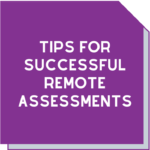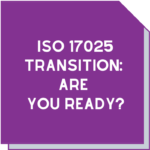5 proven tips for accreditation mastery
 Those gurus that promise your lab will obtain accreditation (or re-accreditation) in seven days or less are like those recipes that tell you caramelised onions will only take five minutes.
Those gurus that promise your lab will obtain accreditation (or re-accreditation) in seven days or less are like those recipes that tell you caramelised onions will only take five minutes.
It just isn’t going to happen.
We’ve certainly assisted clients to obtain accreditation quickly. This meant that with a lot of work, focus and effort, accreditation was obtained in 7 months. But this is definitely the exception rather than the rule.
We’ve written previously about the need to maintain accreditation and we’re firm believers in the truth of this. After all, having an external body examining your systems and giving you (hopefully) a large tick is valuable for the credibility of your business.
But there are five things we can recommend that will smooth the accreditation visit.
Tip 1: Talk to us
OK this one may seem somewhat self-serving, but it makes a lot of sense. By having us come in and carry out a gap analysis, pre-assessment audit or review of your system, you’ll save yourself a lot of anxiety once assessment day rolls around.
Also, having us visit and run through your processes will give staff a small taste of what an assessment visit can be like. And for staff who haven’t been through an assessment, this can be a great practice run and settle any nerves.
If you’re not familiar with how much we can help, do take a look at our website or call us for a confidential discussion.
Tip 2: Be prepared
 We know, this one sounds obvious but in the flurry, you may find you’ve forgotten something (or several somethings) that you should have had ready.
We know, this one sounds obvious but in the flurry, you may find you’ve forgotten something (or several somethings) that you should have had ready.
Our article about how to prepare for your assessment is very helpful but in summary a few things you should have on hand are:
- Your Quality Manual
- Any procedures that relate to what’s being assessed
- Risks to impartiality. You should be able to show you have a system in place and how you’ve responded to them
- Suppliers list
- Complaints and feedback – be sure this is in line with your Quality Manual or procedure
- Nonconformance reports including corrective and/or preventive actions and root cause analysis
- Internal audit reports
- Management reviews
- Training records
- Environmental condition logs
- Test or calibration methods
- Measurement Uncertainty budgets
- Calibration reports
- Proficiency testing/interlab trial results
- Examples of your lab’s test and/or calibration reports. This is to ensure compliance with the Standard including use of the accreditation body’s endorsement
Determine who will be responsible for collecting this information. Will it be the Lab Manager, a senior staff member or a Quality person? Will they do it on their own or delegate tasks?
Having a checklist or chart and delegating someone to action this will ensure there’s no “I thought YOU were doing that??” moments on assessment day.
Tip 3: Keep it current
Nothing will draw unwanted attention faster than out-of-date calibration reports or training records that haven’t been updated since the company began. Of course, in an ideal world all of your information will be completely up to date. But as we all know, the world is seldom ideal!
So be sure that everything you’re providing to the assessment team is current. If those pesky training records need to be brought up to scratch, ensure you leave plenty of time for this to happen.
Tip 4: Make it easy
Having everything ready and easily accessible for the assessment team will set the right tone from the outset.
Having to scramble through documents or files will definitely make you feel more flustered. But it could also signal to the team that you’re not as in control of your system as you’d like them to believe.
Tip 5: Don’t forget the test!
So much preparation can go into the documentation, it can be easy to overlook the tests or calibrations the assessor is going to observe.
Prepare those lab technicians who will be carrying out the test under the watchful eyes of the assessor.
technicians who will be carrying out the test under the watchful eyes of the assessor.
Do a trial run with them and have them talk through the process as they’re doing it. This will give them confidence and make them more comfortable during the assessment.
For a short test or calibration, the assessor will probably want to watch the whole thing. For a longer test or calibration that may take multiple days, the assessor will only want to witness different stages of the process.
In this case, the lab tech will need to explain the parts that weren’t witnessed. Your accreditation body should tell you the specific parts or tests/ calibrations that require witnessing prior to the assessment.
And again, keep in mind that things do happen. What if the lab tech who has been so carefully prepared tests positive to Covid on the morning of the assessment? Do you have someone else that can step in at short notice?
The final word
You are the expert in your lab. Your people are professional and know how to do their jobs well. And the assessment team want you to do well which is why they’ll also point out the positives they come across.
So, keep in mind that while your goal may be zero non-conformances, the assessment is also an opportunity to improve your quality system.
And remember, we’re here if you need help with any part of this process. This also includes being there on the day and if necessary, advocating for you to the Accreditation Body on your behalf.
Contact Maree (0411 540 709) or email info@masmanagementsystems.com.au to set up a confidential discussion.
Remember, you don’t have to do this alone!
Download the article 5 tips for accreditation mastery





